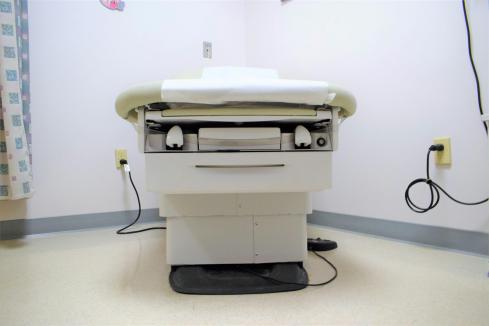New Self-Swab HPV Tests Will Soon Be Available in the U.S.

They're called "self-collection tests."
At this time, providers test patients for HPV by inserting a speculum into the vagina, using a tiny brush to collect cells from the cervix and the area around it (which is located deep in the vagina), and testing them for “cervical cancer or cell changes that may lead to cervical cancer.” Some may describe the experience as unpleasant, but usually not painful. As a result, there may be folks who choose not to get screened for cervical cancer because the exam may come with some discomfort.
But the news that self-swab tests are on the way could change that.
More specifically: in May, the FDA approved “self-collection tests” to detect HPV. These tests allow patients to get the samples themselves because they only require cells from inside the vagina, which you (or the person with the vagina) can easily access. As mentioned above, the current tests for HPV require cervical cells, which are found deeper in the vagina and therefore harder to get, and that’s why providers need speculums (it’s also why some people say the whole process is annoying).
However, if these tests really do make it easier for people to test for HPV, it could lead to more screenings, which is a good thing! The more screenings that take place, the earlier that people who do have cervical cancer will be able to get treatment. Early treatment is crucial when it comes to cervical cancer specifically. Patients will still need to do the swab at their doctors’ offices. Tests began rolling out in October 2024, but may not yet be available everywhere. If you’re interested in learning more about HPV, cervical cancer, or Pap smears in general, make an appointment to talk to a provider at your nearest The Right Time health center.
Related Content


Article
What Does “Dual Protection” Birth Control Mean?It usually means using a condom along with another birth control method.

Article
January is Cervical Cancer Awareness Month: What to Know About HPV and ScreeningA positive HPV test can feel scary, but healthcare providers at your nearest The Right Time clinic can help.

Article
Own Your Well-Being in 2026 with These 3 Sexual Health ResolutionsFirst: prioritize preventative sexual and reproductive health care.



















